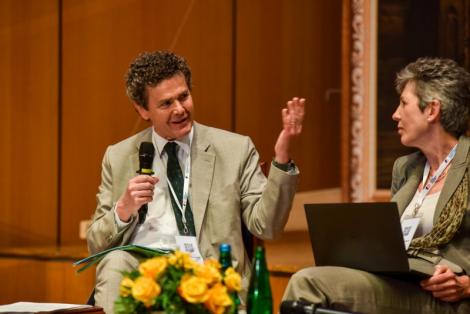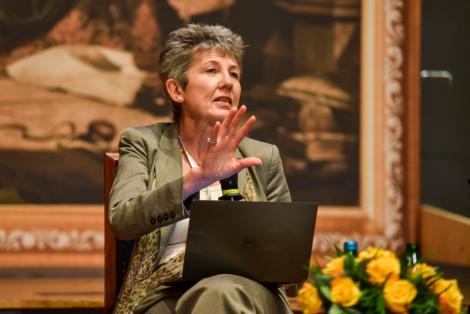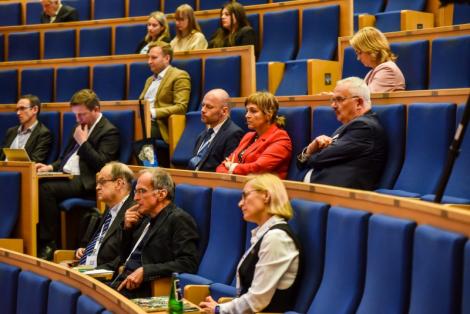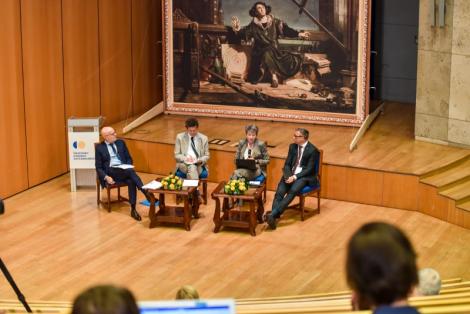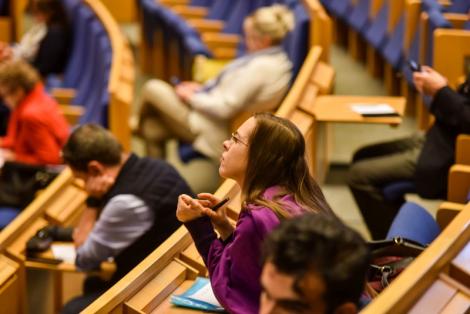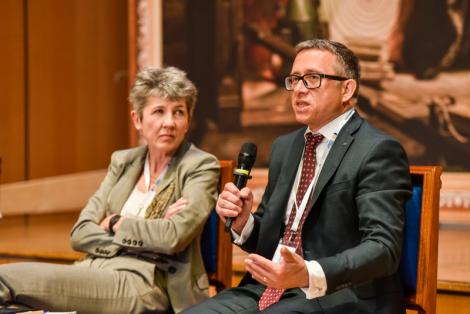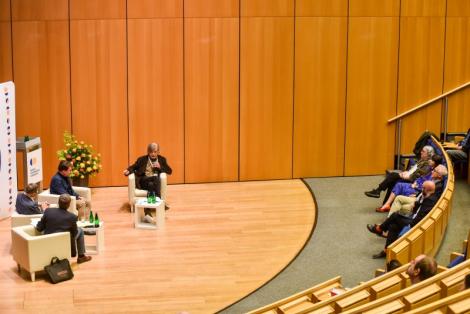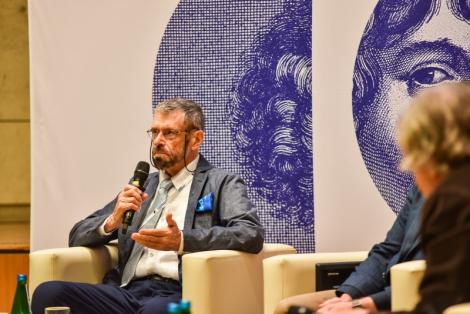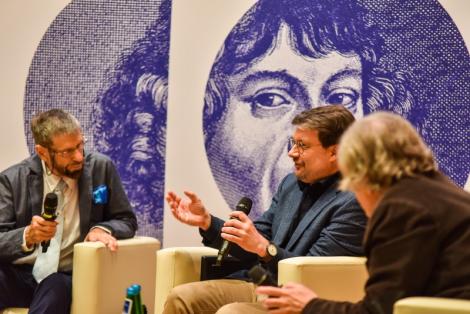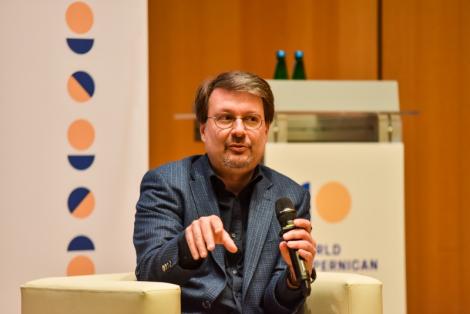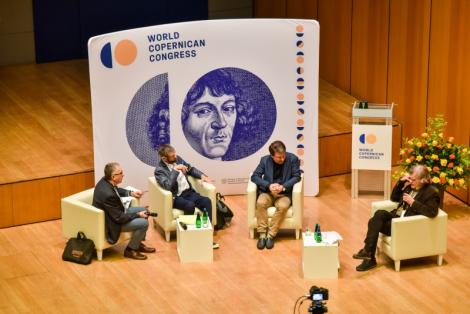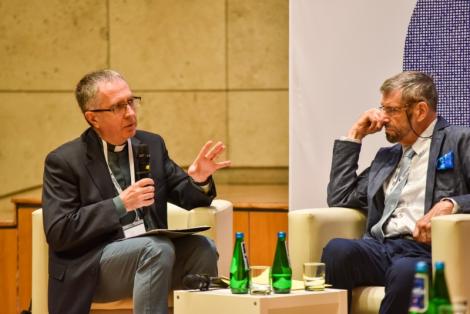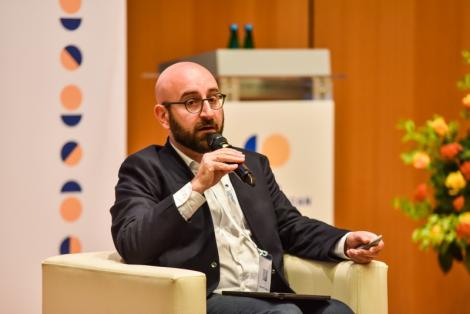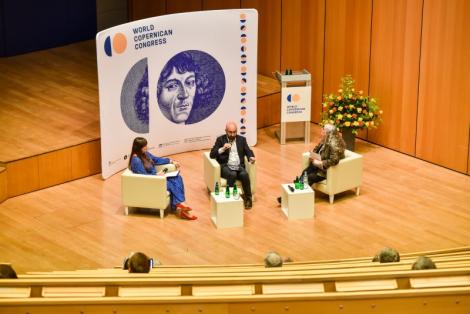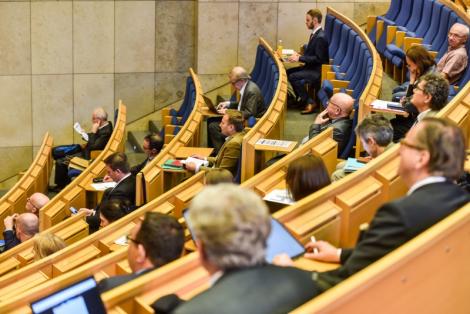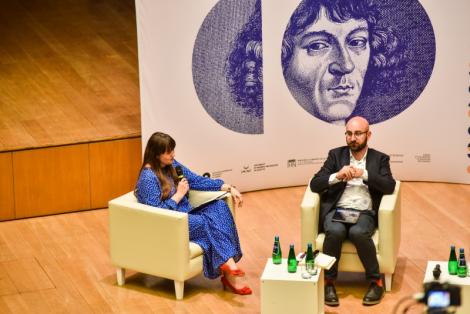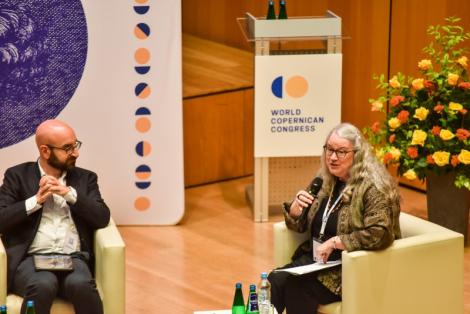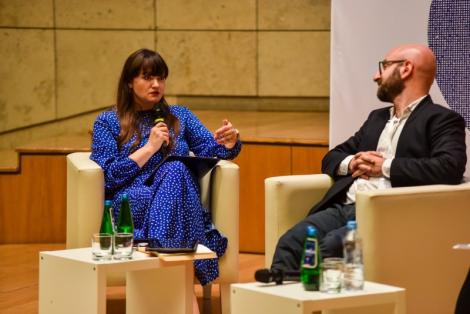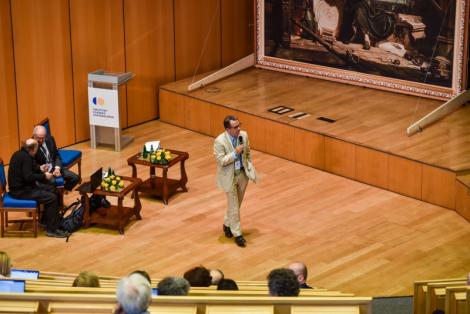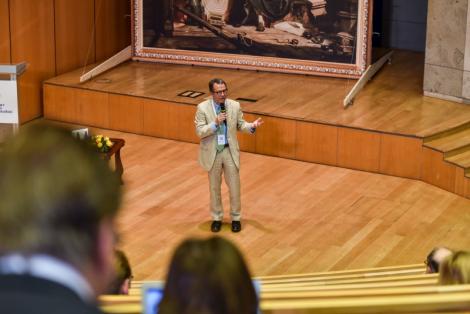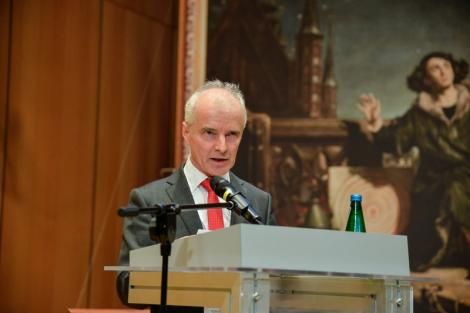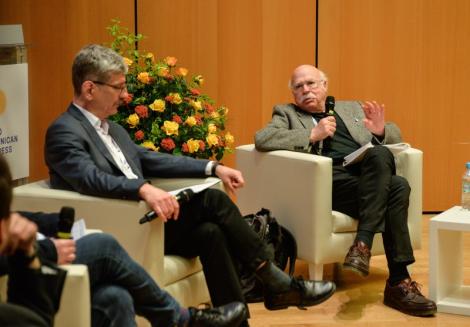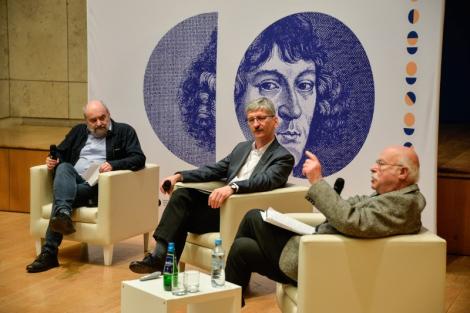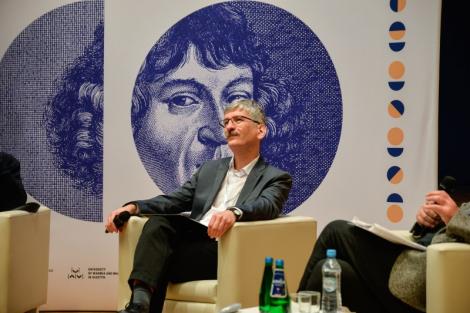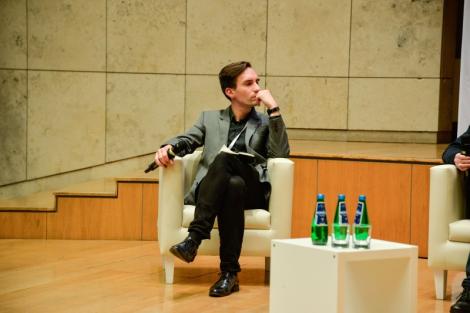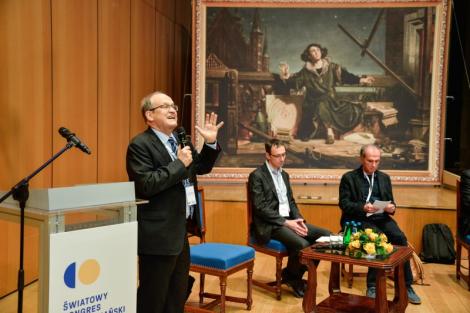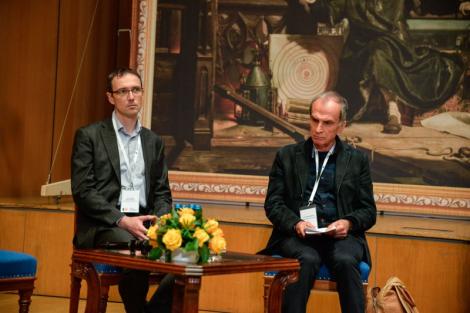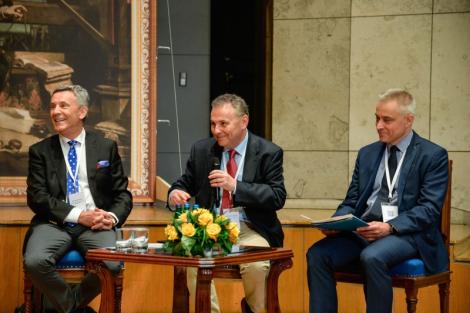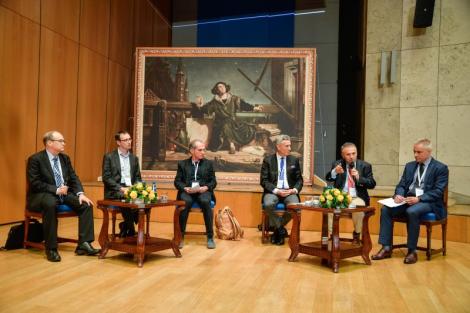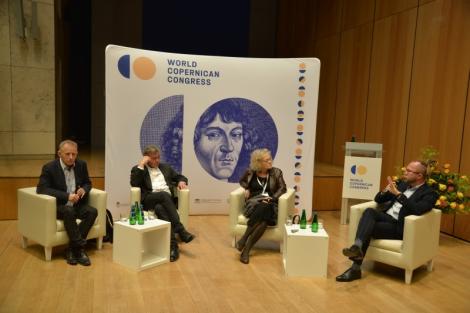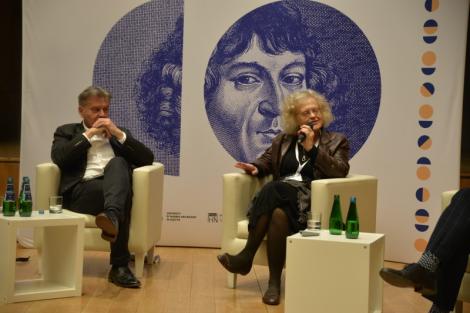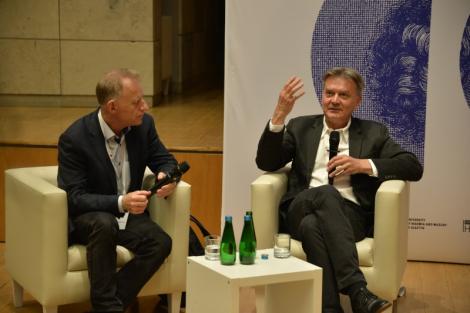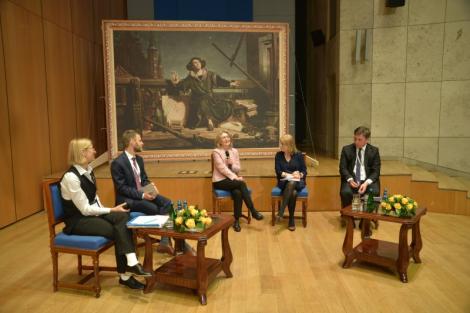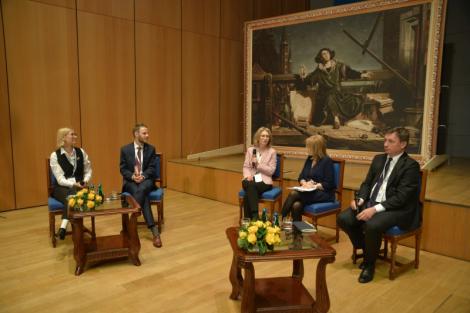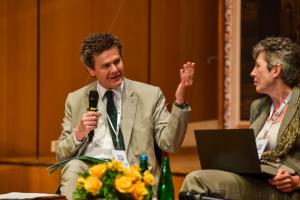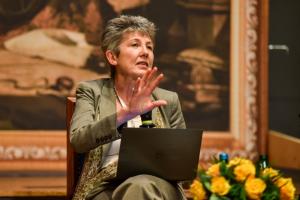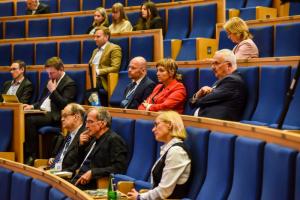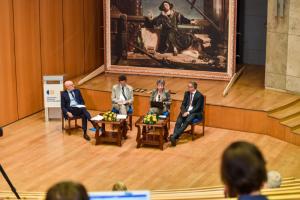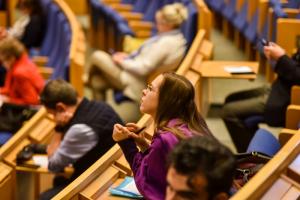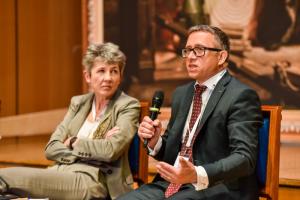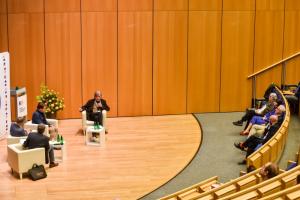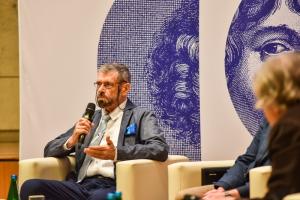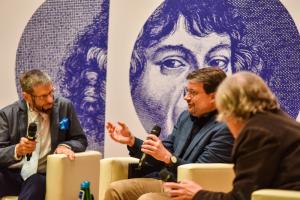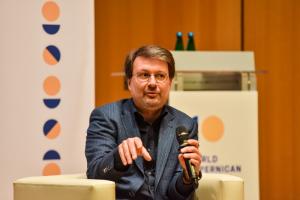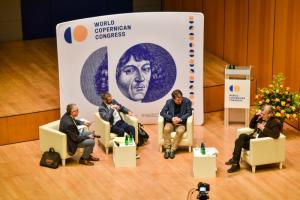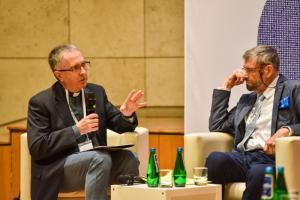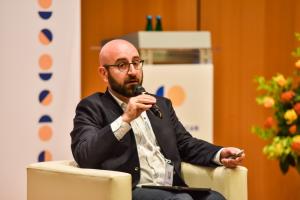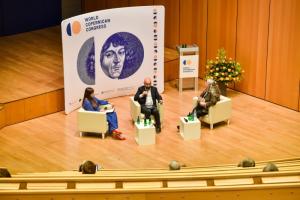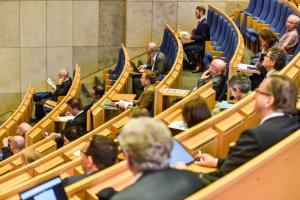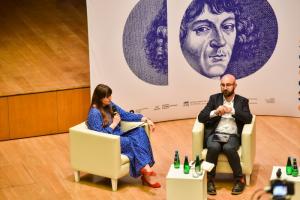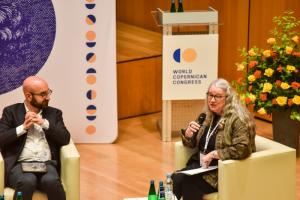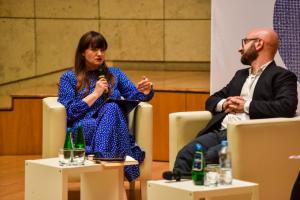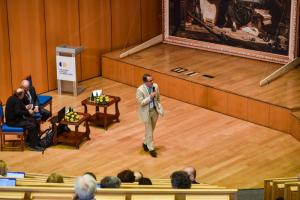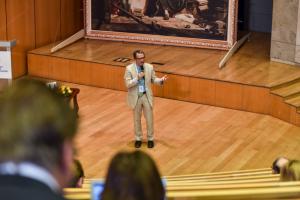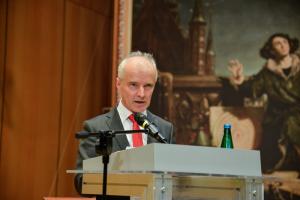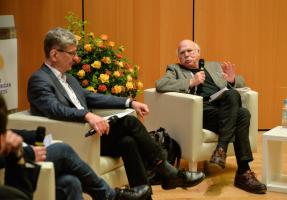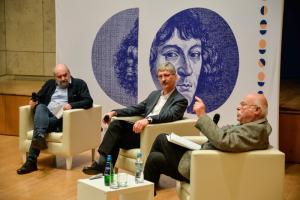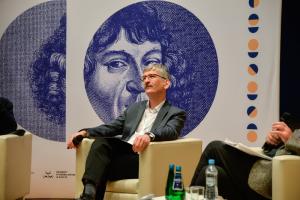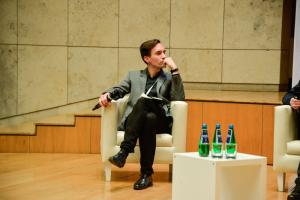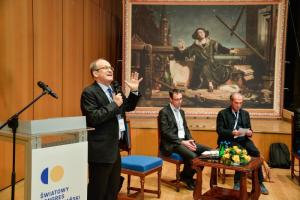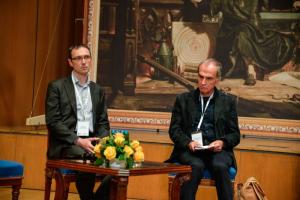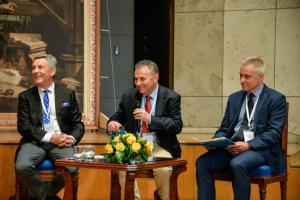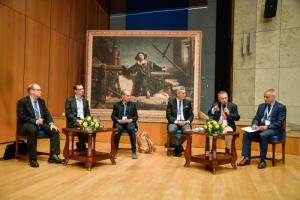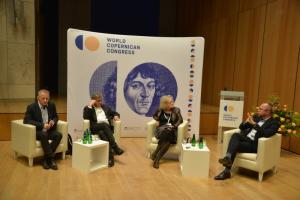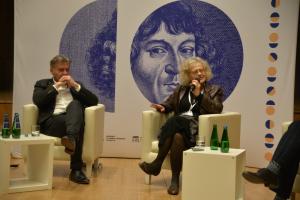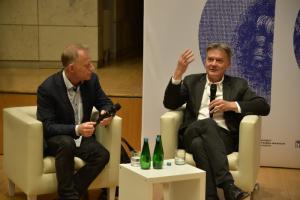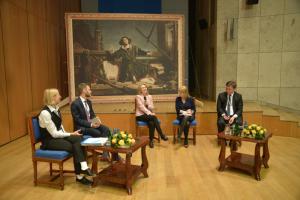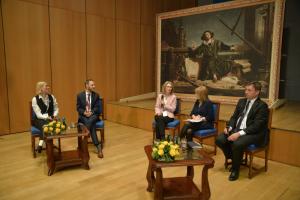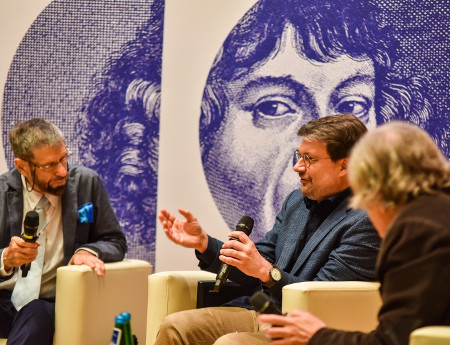
During the second day of the World Copernican Congress, its participants could attend a total of eight discussion panels divided into two sections: on philosophy and on economics. Additionally, Mirosław Bochenek from the Nicolaus Copernicus in Toruń delivered a lecture entitled T. Gresham, M. Kopernik or N. Oresme? From the history of law of worse money.
During the discussion panel How Copernicus saw the world?, presided over by Zbigniew Liana, Stefano Gulizia described Copernicus’ intellectual vision. To put it metaphorically, just as Earth is located between Mars and Venus, so is Copernicus’ life and work wedged between ancient and modern philosophy. He also provided his own assessment of Copernicus’ cognitive process and the mechanisms he employed in his thinking. He also pointed to the role of the readers of the astronomer’s work and their comments in the propagation of his views.
Wojciech Sady focused on the sources that formed the base of Copernicus’ knowledge and his inspirations. He pointed out that for most of his life, during the 40 year period that he spent working in Warmia, he was not part of any academic community. Very little is known about his contacts with scholars from other academic centres.
During the second philosophical discussion panel Science and the evolution of worldviews, Ovanes Akopyan discussed astrology’s relationship with astronomy. He enumerated several reasons as to why astrology was excluded from being a reputable branch of science in the beginning of the modern era. Some of these included: objections of religious authorities, the development of mathematics and the rejection of astrology by the humanities. In his opinion, Copernicus’ was not directly responsible for this process, but he might have influenced it.
The discussion panel Fiscal-Monetary Policy Nexus, moderated by Dubravko Mihajlek from the Bank for International Settlements, revolved around the challenges in fiscal and monetary policy, in particular in the context of the 2008 economic crisis as well as the more contemporary consequences of the COVID-19 pandemic and the war in Ukraine. As stressed by the panel chair, the basic role of monetary policy is to secure financial stability, and in the case of fiscal policy, it is redistribution and allocation of sources, but the mutual relationship between the two are a complex and complicated issue.
Geoff Gottlieb from the International Monetary Fund focused on the problems related to three key questions (‘How inflation impacts the budget?’, ‘How should fiscal policy react to inflation?’ and ‘Should governments alleviate the increasing costs of living?’), while Waltraud Schelke from London School of Economics and Political Science talked about the consequences of the fact that in the modern monetary system, money is created by the state.
The second economic panel Evolution of the International Financial System began with a presentation by Paul De Grauwe. It conclusion was that in order to stabilise the currency union in the EU, a joint central bank needs to engage in supporting governments in times of crisis. However, as it is unlikely that a bank will be able to help in every situation, it will make the eurozone a fragile construct. The second presentation was delivered by Joshua Aizenman, who spoke about the trilemma of economic policy, originally formulated by Robert Mundell, according to which governments can control only two out of the following three: foreign exchange rate, free capital movement and an independent monetary policy. The next speaker, Sebastian Edwards, focused on the question of whether the US dollar will remain at the centre of the international trade system, as its position is threatened by the current transformations on the international political arena. Last not least, Michael Bordo compared the international monetary system and international fiscal system to Copernicu’s heliocentric system, alluding to US dollars central position in international trade akin to the Sun’s position in the Solar System, an issue already raised by the previous speaker.
In the afternoon part of the philosophical discussion, experts debated on the concept of scientific revolution and the idea of progress in science (Evolution or revolution: on progress in science) in a panel presided over by Jędrzej Grodniewicz. According to Adam Grobler, Copernicus changed how humanity perceived the world, so in this sense we can talk about a revolution; however, this was not as clear in his own time, as it took a lot of time and effort to propagate the idea. He stressed that in contract to political revolutions, scientific ones are not about elimination of the opposition.
Tomasz Bigaj listed several important scientific revolutions: aside from Copernicus, the work of Newton and Darwin also led to major breakthroughs, as did our exploration of genetics. In his opinion, without revolution, science falls into stagnation, as there is no change in paradigms and no fresh ideas can alter scientific methodology. Next, referring to a famous philosopher of science Thomas Kuhn, Steven Shapin emphasised that in the modern sense of the world, a revolution, in particular a political one, means striving towards something better. As such, a revolution without clear aims is a wasted effort.
The economical discussion panel The benefits of stabilising and opening Polish economy to exchange chaired by Andrzej Sławiński from the Warsaw School of Economics was focused on the political and economic transformations that happened in Poland over the course of the last thirty years. Experts also shared their thought on the future and the coming challenges that Poland will face in the next few years.
In the philosophical panel The Future of Science, moderator Łukasz Lamża asked questions about the current state of science and where it is headed. He also pondered whether the time of great scientists and discoverers is already behind our civilisation. The conversation quickly focused on the drop in quality in research projects and published papers. The panellists agreed that low quality of education and oversaturation of academia with papers are the main detrimental factors contributing to ‘bad science’.


